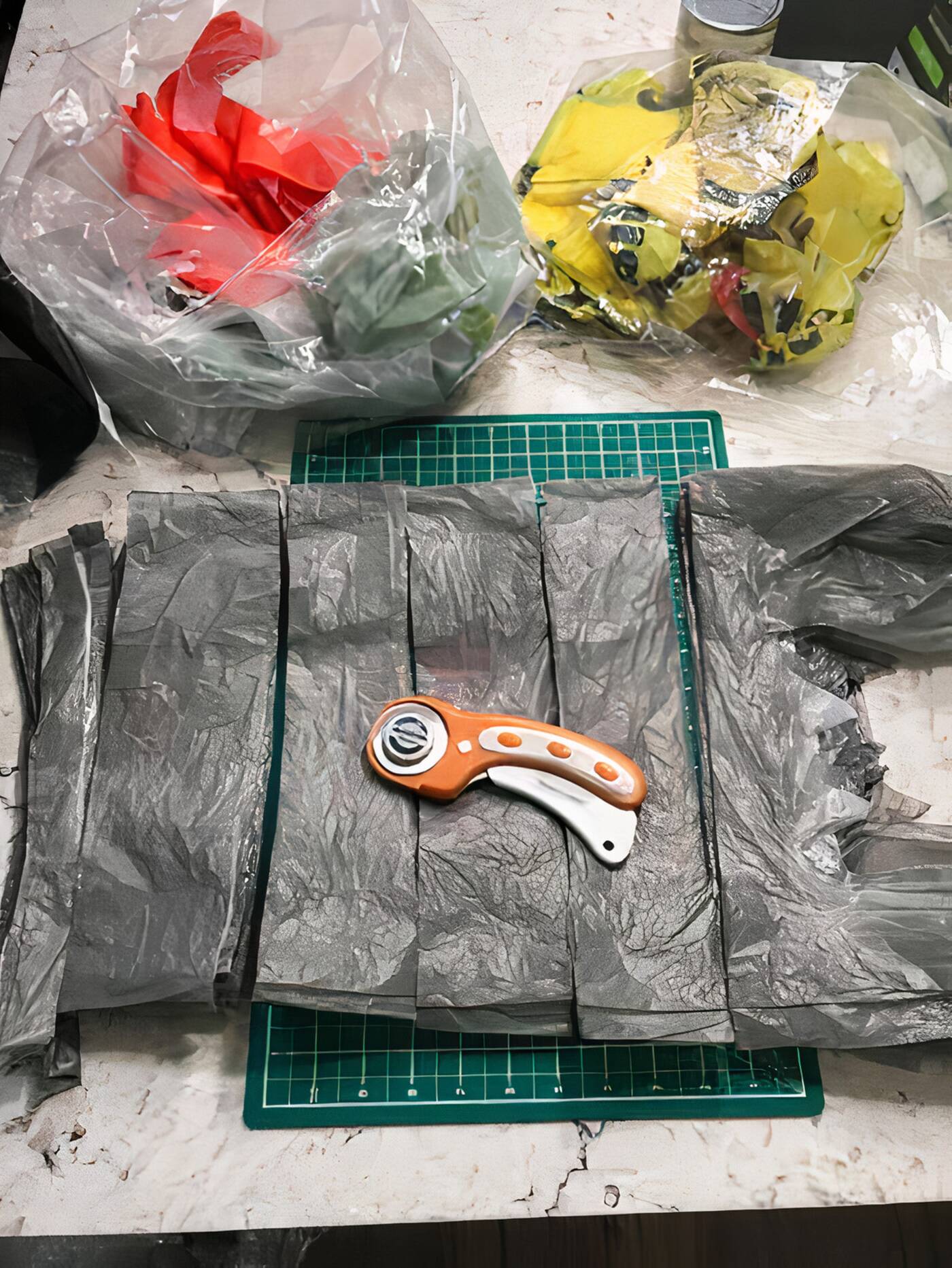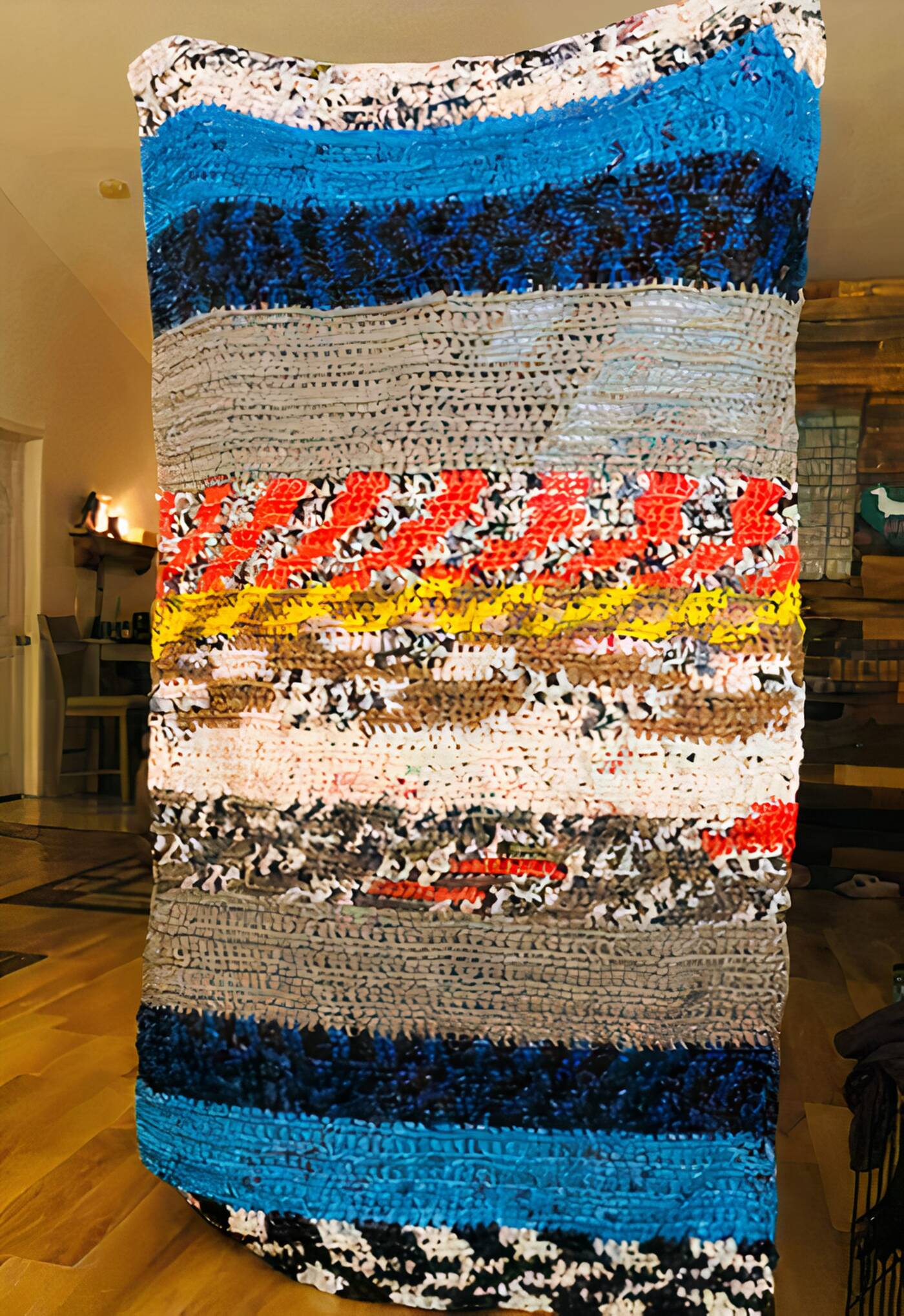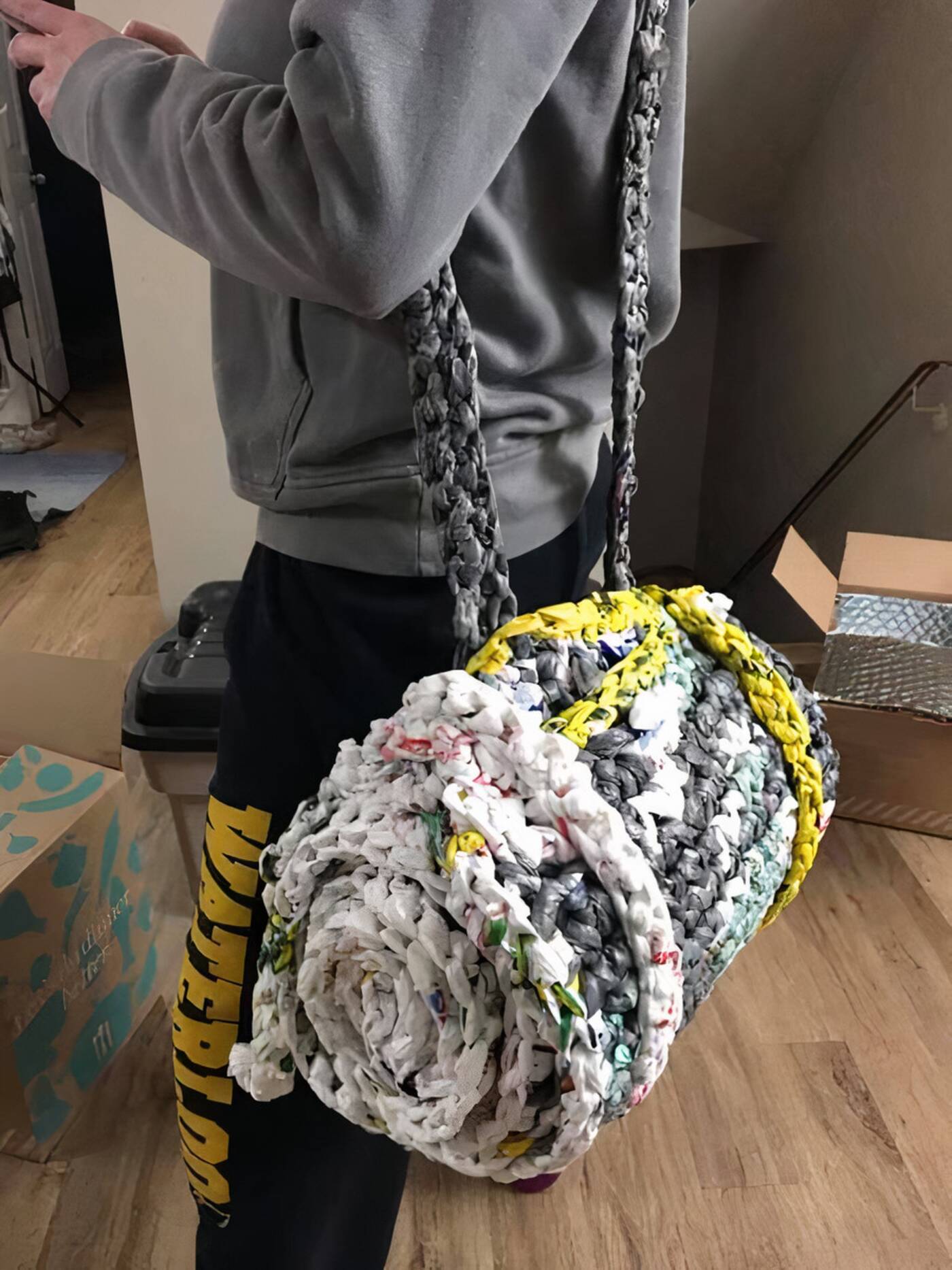
Ontario woman starts initiative making sleeping mats out of plastic bags for the homeless
Kathy Kibble was a frequent volunteer in hospice care and at her granddaughter's school before the pandemic hit. But when COVID-19 made both of those activities impossible, she wanted to find another way to spend her time while also giving back to those in need.
That's why she founded Bags to Sleeping Mats, a Facebook group that connects people in Ontario who want to give away, trade, and collect materials to create sleeping mats out of plastic bags for those experiencing homelessness.
Kibble, who lives in Kitchener-Waterloo, told blogTO it all began when her sister taught her how to crochet this past summer, and she started making dish cloths as a way to fill her time following retirement.
But then she discovered that the technique could be used to create lightweight, sustainable sleeping mats for those living outdoors.
"I saw a person on one of the facebook groups posted saying they were looking for plastic bags because they wanted to crochet them into sleeping mats," she said. "So that's what I decided to do."
She began making her own at home, but quickly developed trouble with her wrist that prevented her from making as many mats as she would have liked.
"I thought, this is such a great thing to do, and I can get other people to help me," she told blogTO. "So I created the Facebook group."
While the technique of cutting plastic bags into strips, looping them together, and then crocheting them into mats is far from new, Kibble wanted to create a larger initiative where anyone could access the instructions and materials needed to participate. And she succeeded.
 The Bags to Sleeping Mats group now has more than 300 members after being created at the end of December, and so many people from different Ontario neighbourhoods are now dedicating their time (and stockpiled plastic bags) to help create the mats.
The Bags to Sleeping Mats group now has more than 300 members after being created at the end of December, and so many people from different Ontario neighbourhoods are now dedicating their time (and stockpiled plastic bags) to help create the mats.
"It's just taken off," Kibble said.
While the Facebook group serves as a place for people to connect about resources and materials, Kibble also created a website that includes instructions on how to make the mats and a list of drop-off locations for people who want to donate plastic bags.
Kibble's website also provides some suggestions for organizations where people can donate the completed mats once they're ready to be given to the homeless, but it's up to individuals to do the rest.
"I'm trying to make it self-managing so that people can do things on their own or in their own community," she said.
 So far, there are plastic bag drop-off locations in Kitchener, Cambridge, Guelph, and Fergus, but Kibble said she's hoping people across Ontario and all over Canada get on board.
So far, there are plastic bag drop-off locations in Kitchener, Cambridge, Guelph, and Fergus, but Kibble said she's hoping people across Ontario and all over Canada get on board.
In particular, she's hoping more individuals in Toronto will join in on the efforts considering the vast number of people experiencing homelessness and living outside in Canda's largest city.
As of Dec. 2, the city had identified at least 395 tents in parks across Toronto.
"Let's get people in Toronto making mats and getting them to the homeless people in Toronto," she said. "Let's do it. They need it."
According to the website, about 700 retail and outer milk plastic bags are used for each mat, and they serve as an insulating layer from the ground that protects from cold or hard surfaces and helps retain body heat while sleeping.
The mats are lightweight, quick-drying, don't attract bed bugs or lice, and can easily be hosed off or shaken out when they get dirty.
They can also be rolled up and carried over the shoulder with an accompanying strap attached.
 "It's important because the ultimate goal is to help the homeless and give them a warmer place to lay down and provide some protection from a cold, hard surface," said Kibble. "That is the ultimate goal."
"It's important because the ultimate goal is to help the homeless and give them a warmer place to lay down and provide some protection from a cold, hard surface," said Kibble. "That is the ultimate goal."
But in addition to helping those experiencing homelessness, Kibble said participating in the initiative is also helping those who are isolated and bored as a result of the pandemic.
She said the interest from isolated seniors in particular has been overwhelming, and parents are teaching their kids to crochet as a way to keep the busy during the lockdown as well.
"It's really a great activity to do during a pandemic and the lockdown and I think that's why we're seeing the interest that we're seeing," she said.
"The steps to carry out the work can really be done by people of all different ages. I think that that's the beauty of it. There's different steps that could be done by different people."
Not to mention that upcycling hundreds, if not thousands, of plastic bags is great for the environment and costs next to nothing.
"I think people want to help. People are kind, they're good, but they don't really know how to help, and this is the way that people can help out, and it's covid-safe," said Kibble.
"I just really believe that it's a great time to come together and work as tribes and make things happen. Do the right thing and be kind, that's what I think. This is all about just being kind and helping others in a safe way."
Kathy Kibble
Latest Videos
Latest Videos
Join the conversation Load comments







